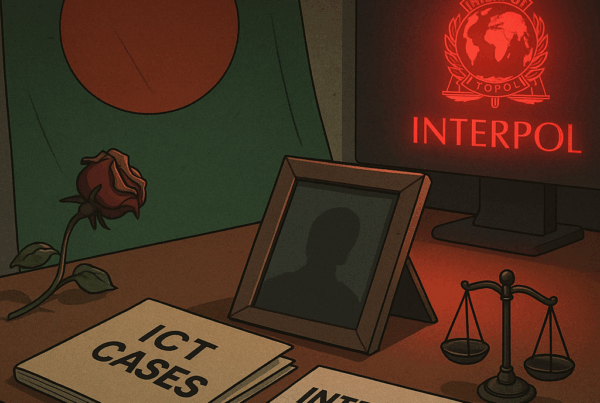The Committee on the Processing of Data (CPD)—a standing body of INTERPOL’s General Assembly—has launched a second (and much welcomed) call for civil society contributions as part of its ongoing review of the Statute of the Commission for the Control of INTERPOL’s Files (CCF).
This follows a first consultation held in April 2025, which covered two foundational topics:
- Topic 1: Procedure for the Examination of New Requests
- Topic 2: Right to Access, Correct and Delete Data – Misuse of CCF Proceedings
The current consultation, open until 19 October 2025, invites input on three additional themes that relate to the structure, composition, and support functions of the CCF. These are core governance questions with long-term implications for the Commission’s institutional credibility and effectiveness.
Scope of the Current Consultation
The CPD’s second consultation invites contributions from civil society on three distinct areas of the CCF Statute, each concerning the institutional architecture and functional operation of the Commission:
1. Use of External Experts (Article 22)
The CCF is currently authorized under Article 22 to consult individuals or bodies with recognized expertise.
The Commission may entrust any individual or body with recognized expertise with the task of providing expert advice, subject to confidentiality requirements and restrictions.
Article 22: Experts
The CPD is now considering whether to formalize this practice through the creation of a standing pool of experts available to assist the CCF.
As a preliminary assessment, the establishment of such a mechanism appears well-founded and should be supported. Assistance could appropriately be provided during deliberations or through written consultations outside formal sessions, provided that the framework ensures both transparency and institutional independence.
2. Selection of CCF Members (Articles 8 and 9)
Articles 8 and 9 of the CCF Statute regulate the composition and election of the Commission. It is composed of seven members, each of whom must individually meet the standard of high moral character, impartiality, and integrity, and possess qualifications suitable for appointment to senior positions in their respective fields of expertise. Members must be nationals of different INTERPOL member countries and fluent in at least one of the Organization’s working languages. The Statute further requires specific legal and technical expertise depending on the chamber: the Requests Chamber must include lawyers with backgrounds in data protection, international police cooperation, international criminal law, human rights, and judicial or prosecutorial experience. The Supervisory and Advisory Chamber includes members with expertise in data protection and electronic data processing.
The Commission shall be composed of seven members, elected from among persons of high moral character, impartiality and integrity who possess the qualifications required for appointment to senior positions in their field of expertise.
Article 8: Composition
The process is conducted externally: candidates are nominated by INTERPOL member countries, shortlisted by the Executive Committee, and elected by the General Assembly by secret ballot, with a simple majority required.
Although no amendments to Articles 8 or 9 are currently proposed, the CPD is seeking civil society input on how to enhance transparency, accountability, and effectiveness in this selection process.
Improving the integrity and visibility of appointments to the Commission would represent a meaningful institutional development. Pragmatic options could include publishing basic information about the nomination and election timeline, making candidate profiles and qualifications available to both member countries and the public prior to the vote, and clarifying the evaluation criteria used by the Executive Committee when preparing the list of eligible candidates. These measures would enhance transparency and would strengthen confidence in the Commission’s independence and professionalism.
3. Role of the CCF Secretariat (Article 15(3))
Under Article 15(3) of the Statute, the Secretariat is mandated to assist the CCF in the effective performance of its functions. In practice, this includes acting as the intermediary for all communications between the CCF and the parties to a case—namely, the applicant and the source of the data. The CPD is now considering whether to formally codify this practice in the Statute.
Clarifying this function at the statutory level would promote procedural consistency and strengthen the Secretariat’s institutional role without altering the Commission’s decision-making autonomy. As a matter of practice, the Secretariat already plays a critical role in facilitating communication, and codification would reflect existing operational realities.
Conclusion
This second consultation launched by the CPD presents a timely and important opportunity to strengthen the institutional framework governing the CCF. While none of the topics currently under review require structural change to the CCF’s mandate, each raises issues of transparency, functionality, and long-term credibility. Supporting well-calibrated reforms in these areas—expert engagement, member selection, and procedural clarity—can reinforce the CCF’s ability to carry out its oversight role with independence, professionalism, and legitimacy.
Civil society actors can contribute here: https://www.interpol.int/Who-we-are/Legal-framework/Review-of-CCF-Statute-Call-for-Contributions





